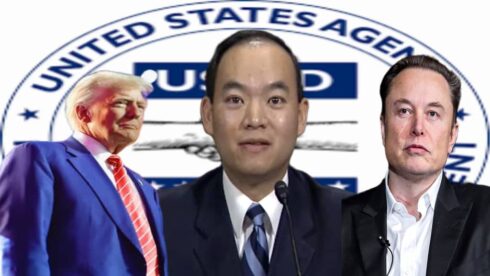Judge Theodore Chuang has delivered a major legal setback to the Trump administration by ruling that its attempt to dismantle the U.S. Agency for International Development (USAID) likely violates the U.S. Constitution. In his decision, Chuang found that the Department of Government Efficiency (DOGE), under Elon Musk’s leadership, lacked the authority to shut down USAID without congressional approval. He emphasized that such unilateral action contravenes constitutional provisions, particularly the Appointments Clause and the separation of powers.
The judge’s ruling effectively reinstates USAID’s operations, preventing any further dismantling efforts without due process. He also ordered the immediate restoration of email and computer access for all USAID employees, including those who were terminated or placed on administrative leave. This decision underscores the judiciary’s role in maintaining governmental checks and balances and reinforces the need for executive actions to comply with legal and constitutional mandates.
Judge Theodore Chuang Rebukes Elon Musk’s Authority
Judge Theodore Chuang specifically questioned Elon Musk’s role in attempting to dissolve USAID without proper oversight. The ruling highlights that Musk, as the head of DOGE, did not possess the legal authority to execute such sweeping changes without the approval of a duly appointed federal officer. Chuang noted that the administration’s failure to seek congressional input or obtain Senate confirmation for key decision-makers rendered the move legally dubious.
This judicial pushback places Musk at the center of a broader debate over executive power and corporate influence in government. Critics argue that Musk’s involvement in government restructuring efforts blurs the line between private enterprise and public administration. Legal analysts suggest that this case could set a precedent for future challenges against politically appointed officials who attempt to bypass traditional governance structures.
Judge Theodore Chuang Highlights Constitutional Violations
Judge Theodore Chuang’s ruling pointed to multiple constitutional violations, particularly the administration’s failure to adhere to the Appointments Clause. This clause mandates that significant federal positions be filled by individuals who have been vetted and confirmed by the Senate. The judge asserted that the Trump administration’s decision to empower DOGE to dismantle USAID without proper authority disregarded this fundamental requirement.
Additionally, the court emphasized that the separation of powers was at risk due to DOGE’s overreach. The executive branch’s attempt to sidestep legislative oversight in shutting down a major federal agency raised alarms about unchecked presidential authority. The ruling reinforces the judiciary’s role in preventing constitutional violations and ensuring that government agencies remain accountable to the law.
Judge Theodore Chuang Cites Public Interest Concerns
Judge Theodore Chuang underscored the broader implications of dismantling USAID, particularly the harm it would cause to public interest and international stability. USAID is a cornerstone of U.S. foreign policy, providing crucial humanitarian aid, disaster relief, and development assistance worldwide. The agency’s abrupt closure would have disrupted ongoing programs and left millions of people without critical support.
By reinstating USAID’s operations, Chuang’s ruling protects not only the agency’s employees but also the global communities that rely on its services. Advocacy groups and international organizations have welcomed the decision, calling it a necessary intervention to prevent reckless government actions from undermining long-standing diplomatic and humanitarian efforts.
Judge Theodore Chuang’s Decision Sparks Political Fallout
Judge Theodore Chuang’s decision represents a significant political setback for the Trump administration. The ruling complicates its broader efforts to restructure or eliminate federal agencies in pursuit of a smaller government. The administration’s legal battles over executive power have already been a contentious issue, and this latest defeat could influence public perception.
Political analysts suggest that the ruling may energize opposition efforts to scrutinize and challenge further attempts at executive overreach. The decision reinforces concerns among moderates and constitutional scholars about the administration’s governance tactics. With growing judicial resistance, the Trump administration may find it increasingly difficult to push through radical structural changes without facing legal repercussions.
Judge Theodore Chuang’s Ruling Sets Up Future Legal Showdown
Judge Theodore Chuang’s ruling is likely to face an appeal from the Trump administration, potentially setting up a legal showdown in higher courts. However, legal experts believe that overturning the decision will be difficult, given its strong constitutional basis. Any attempt to continue dismantling USAID will now require a more rigorous legal strategy and congressional involvement.
Meanwhile, USAID is expected to resume full operations, with employees returning to their roles and ongoing projects continuing without disruption. This case serves as a critical reminder of the importance of constitutional governance and the judiciary’s role in upholding the rule of law. As the legal battle unfolds, it could shape future debates on executive power, agency independence, and the limits of presidential authority.














